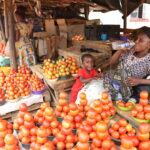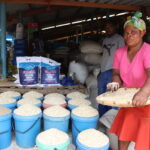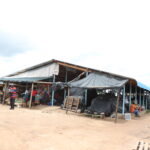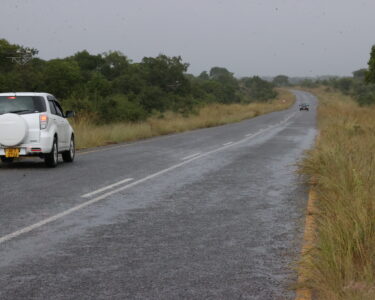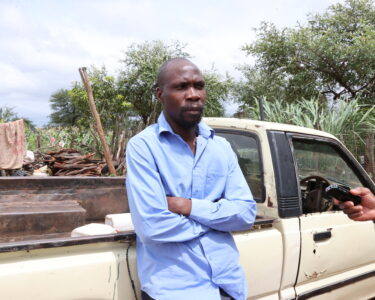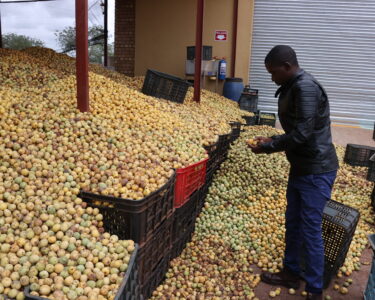When the chairman of Garikai (Chitima) Fruit and Vegetable Market in Masvingo, Martin Shaka, lost his job in 2013, he was gutted. For weeks, he sat at home wondering how he was going to look after his family.
“For several weeks, I was depressed but since I was the family’s breadwinner, I decided to become a vendor. I have not looked back since then. My life has changed completely. I am living a comfortable life.
“I am glad that the council, through devolution funds, built us these comfortable structures. Above all, we no longer engage in running battles with council police. The council is actually on our side.
“There are about 530 vendors at this market — women, youths, war veterans, the elderly, the disabled and men like me. We have made sure that people from all walks of life are represented.
“There are approximately 250 applicants on our waiting list. Unfortunately, we do not have any space to accommodate them. We have since engaged council to allocate us more space so that we can accommodate them. More vendors would like to join us because this is the biggest market in Masvingo. This is Masvingo’s Mbare Musika. Traders from as far afield as Bikita, Ngundu, Chiredzi and Zvishavane flock to Garikai (Chitima) Fruit and Vegetable Market to buy fruits and vegetables for resale.
“All of us are registered with Masvingo City Council. Whether you are operating from a temporary or finished bay, you are required to have a council account into which you pay the Zim dollar equivalent of US$15 a month.
“This market is a blessing to us. When we moved into this market, most of us were lodgers but now many of us own our own houses. In my case, I used to rent one room, but I now have my own house. Yes, there are some outstanding issues that need attention, but the unmitigated truth is that this market has transformed our lives beyond measure. The good thing is that we are working very well with council and this makes our lives very easy. Our grievances are attended to swiftly,” said Shaka.
However, it was not all smooth sailing, according to Shaka, as he went on to highlight some of the challenges the traders were facing, including competition from illegal traders. “We are calling on council to remove these illegal traders because they are taking away our customers. People complain kuti akuna mabasa (there are no jobs), but if we look at the Zimbabwean economy, vendors and small traders are contributing significantly to the economy.
“Government is calling on vendors and small traders to formalise their operations and, to be honest, this is the way to go. We have funeral policies and bank accounts while some of us now have access to loans because we are organised. There are others who have bought trucks that are now being hired by farmers to bring their produce here. This is empowerment. What else can one ask for?
“We are grateful to the Second Republic for coming up with policies to empower vendors and small traders. Hurumende yedu is saying basa hakusi kubairwa chitambi pamurungu. Basa kugona kuzvishandira nemaoko ako. (Being employed does not mean working for someone else, but the ability to use one’s hands profitably). I would like to extend a big ‘thank you’ to President Mnangagwa for remembering us. His government has opened up several opportunities for vendors and small traders.
“We would also like to thank council for partnering us. We have a very good working relationship with the city fathers. Whenever we have a problem, they are just a phone call away.”
Ellen Manyenyawapo is a vendor who doubles as secretary for the traders. She says: “All is well here. Our biggest challenge, though, is keeping the market clean. There are 530 of us operating from here. We are calling on council to enforce cleanliness. In addition, we need a pavement for our customers to facilitate freedom of movement when they come here for shopping.”
Despite the challenges, Ellen concurred with Shaka that the market had gone a long way in changing lives.
Says Manyenyawapo: “I used to rent two rooms, but I have since built myself a seven-roomed house at Victoria Ranch. The majority of traders here have succeeded in sending their children to school, right up to university.
“There is a tendency for some people to look down on market traders, but let me tell you vanhu ivavo vakarasikirwa (such people are lost). I became a market trader at 20, now I am 47. I live a very comfortable life, perhaps more comfortable than most people of my age can afford.
“I am an empowered woman and I don’t feel the urge to look for paid employment. Some women prefer to engage in immoral activities like prostitution but, take it from me, if you are empowered and willing to work, you won’t even think of undermining your dignity by selling your body.”
So what was her advice to her fellow women?
“My message to women is mukadzi wanhasi usagarire maoko. Simuka pauri ushande. Tisagarire maoko (Women should not relax and expect money to be handed to them on a sliver platter. They should work for their upkeep). Gone are the days when we expected for our husbands to do everything for us. We should assist our spouses by venturing into income-generating projects,” she said, adding: “We want to thank President Mnangagwa. He knows there are informal traders like us and he is making sure that our needs are well taken care of. We would also like to applaud the Masvingo City Council, with whom we have an excellent working relationship.”
Disabled
The Garikai (Chitima) Fruit and Vegetable Market has wholeheartedly embraced the Second Republic’s mantra of “leaving no one and no place behind” by opening its doors to people living with disabilities. One of them is ………………………, who lost her arm in a bus accident in October 2013.
This is her story: “I was travelling by bus from Musina in South Africa when we were involved in an accident just as we were entering into Masvingo. I suffered an injury to my hand which had to be amputated. In 2017, I was registered as a trader here at Garikai market. As someone living with a disability, this market has turned out to be a God-sent for me.
Moses Nhidza, the technical officer (buildings) under Masvingo City Council, had the last word: “These structures were built in 2020, but the market is still work-in-progress. So far, we have completed three sheds, while work on the fourth is at an advanced stage. Before the construction of this market, our traders were selling their wares from congested plastic shacks. It is our desire as council to improve their working environment.
“Our job as council is simply to put up the necessary infrastructure. The allocation of stalls to individual traders is done by a committee which works closely with the City Housing Department.



